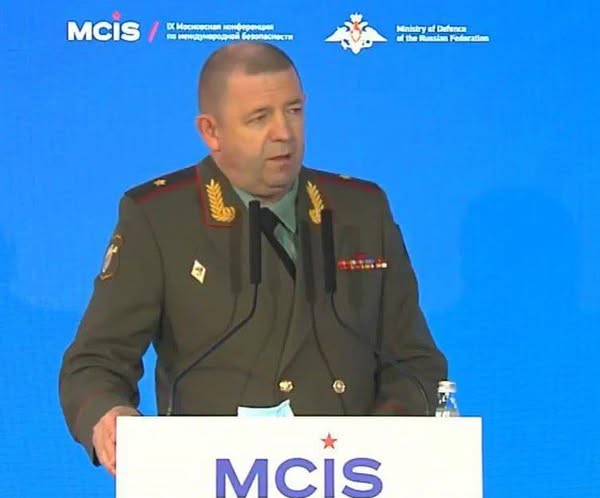Russian General Yaroslav Moskalik Killed in Car Bombing Outside Moscow in Brazen Attack That Raises Alarming Security Concerns
MOSCOW, Russia – In a shocking escalation of violence that has sent ripples through Russia’s military and political circles, Lieutenant General Yaroslav Yaroslavovich Moskalik, one of the country’s most senior military officers, was killed in a devastating car bombing in Balashikha, a suburb east of Moscow, on Friday, April 25, 2025.
The explosion, reportedly triggered by an improvised explosive device (IED) planted in or near a parked vehicle, occurred early in the morning as General Moskalik was commuting. The blast not only killed the general instantly but also shattered windows in nearby residential buildings, sending residents into panic. Witnesses described a massive explosion followed by plumes of black smoke rising above the treetops.
Russia’s Investigative Committee has confirmed the general’s death and has launched a high-level criminal inquiry, labeling the incident as a premeditated murder involving a sophisticated and targeted explosive device. The general, who was 58 years old, held the position of Deputy Chief of the Main Operational Directorate of the General Staff of the Russian Armed Forces — a role central to Russia’s strategic military planning.
A Distinguished Career Ends in Violence
Born in 1966 in the Uzbek SSR, Moskalik’s career spanned decades of service to the Russian military. He was widely respected within defense circles and was known for his involvement in operational leadership and diplomacy. He had represented Russia in past negotiations surrounding the conflict in Ukraine, and held sway within internal military discussions on regional security and counter-terrorism operations.
His assassination is being seen as one of the most significant and symbolic attacks on Russian leadership in recent years — one that calls into question the ability of even the most powerful and protected members of the Russian establishment to remain safe within the nation’s borders.
A Grim Pattern Emerges
This attack is not an isolated incident. In December 2024, Lieutenant General Igor Kirillov was killed in a similar bombing under murky circumstances, prompting concerns of a pattern of targeted assassinations. The Kremlin has not officially linked the two deaths but is facing growing internal and international pressure to identify and neutralize those responsible.
While no group has claimed responsibility for Friday’s attack, Russian authorities have hinted at the possibility of Ukrainian involvement, suggesting the bombing may be tied to ongoing hostilities and covert operations related to the war in Ukraine. However, no direct evidence has been presented, and Ukrainian officials have not commented.
Timing Raises Further Tensions
Notably, the attack came just hours before U.S. presidential envoy Steve Witkoff was scheduled to meet with Russian President Vladimir Putin to discuss the terms of a proposed peace framework in the Russia-Ukraine conflict. The timing of the assassination is likely to complicate already fragile diplomatic negotiations and further destabilize trust between Russia and Western powers.
Security measures have been rapidly heightened in the Moscow region. Key military and government officials are reportedly under enhanced protection, and military sites across the country have moved to elevated alert statuses. Balashikha, the site of the explosion, is now under intensive surveillance, and forensic teams remain on scene combing through debris and collecting surveillance footage.
National Shock and International Fallout
The Russian public and military alike are reeling from the news. Tributes from fellow officers, state officials, and veterans have flooded social media and government channels. State-run news outlets are urging calm while reinforcing the government’s resolve to respond decisively and pursue justice for Moskalik’s death.
International observers are also closely monitoring the fallout. Experts warn that this killing could escalate Russia’s military posture, intensify retaliatory cyber or intelligence operations, or even provoke a new wave of domestic crackdowns against suspected enemies of the state.
The Road Ahead
As Russia buries one of its most experienced generals, questions loom large: Who orchestrated the attack? Was this an act of foreign aggression, internal dissent, or rogue elements within the system? And perhaps most importantly — how will Russia respond?
The Kremlin has promised swift action, but in the shadow of yet another deadly bombing, an air of vulnerability hangs over the highest levels of Russian power.
Updates will follow as more details emerge.
